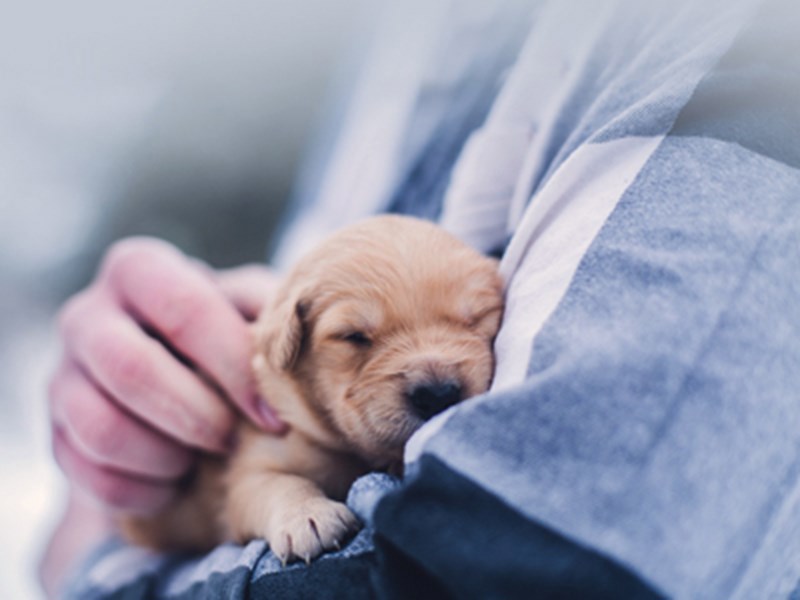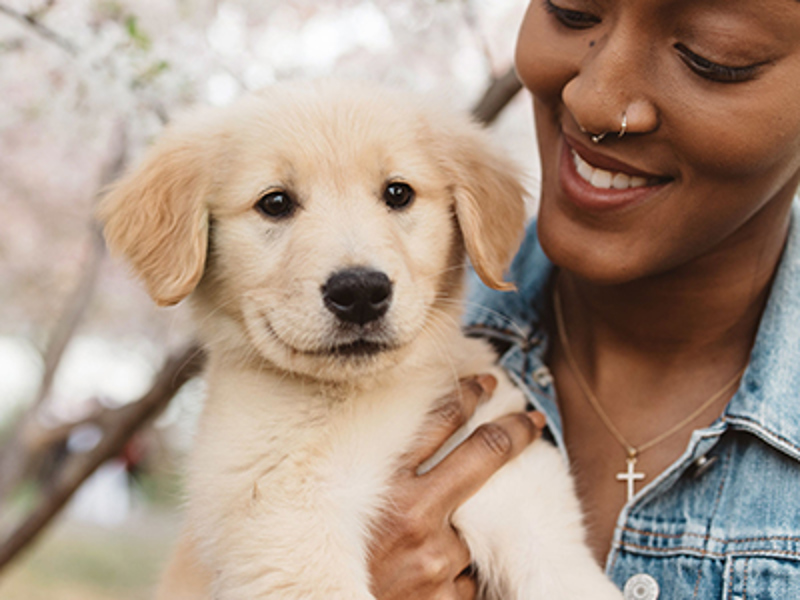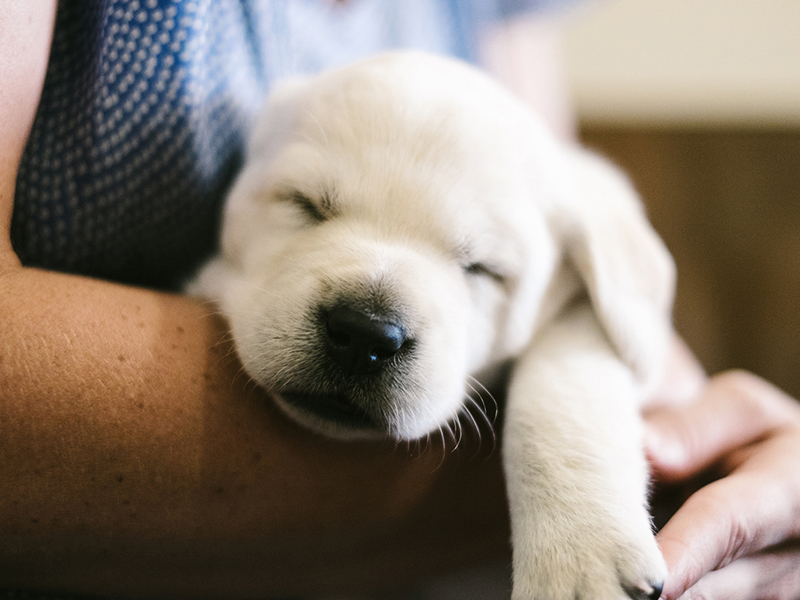
Beagle
Breed characteristics
- Size
- Small
- Exercise
- Up to 1 hour per day
- Size of home
- Small house
- Grooming
- Once a week
- Coat length
- Short
- Sheds
- Yes
- Lifespan
- Over 12 years
- Vulnerable native breed
- No
- Town or country
- Either
- Size of garden
- Small/ medium garden
About this breed
The Beagle is the smallest of the British pack hounds bred to hunt hare, and to be followed on foot, hence appealing to those who could not follow the larger scent hounds on horseback. The breed was established in England by the 15th century. Queen Elizabeth kept a pack of miniature Beagles small enough to be carried in a saddle pannier or a pocket. The miniature version has fallen out of favour in the UK but in the USA the breed is shown in two varieties and the smaller one is known as the Pocket Beagle.
Images for this breed
The Hound breed group
Breeds originally used for hunting either by scent or by sight. The scent hounds include the Beagle and Bloodhound and the sight hounds such breeds as the Whippet and Greyhound. Many of them enjoy a significant amount of exercise and can be described as dignified, aloof but trustworthy companions.
Breed standard colours
Breed standard colour means that the colour is accepted within the breed standard and is a traditional and well-known colour in this breed.
Breed standard colours in this breed include:
- Badger Pied
- Badger Pied Mottle
- Black & White
- Black & White Mottle
- Blue White & Tan
- Blue White & Tan Mottle
- Hare Pied
- Hare Pied Mottle
- Lemon & White
- Lemon & White Mottle
- Lemon Pied
- Lemon Pied Mottle
- Red & White
- Red & White Mottle
- Tan & White
- Tan & White Mottle
- Tricolour
- Tricolour Mottle
- White
Other colour/s
'Other' means you consider your puppy to be a colour not currently known within the breed and one that does not appear on either the breed standard or non-breed standard list. In this instance you would be directed through our registrations process to contact a breed club and/or council to support you on identifying and correctly listing the new colour.
Non-breed-standard colours
Non-breed-standard colour means that the colour is not accepted within the breed standard and whilst some dogs within the breed may be this colour it is advised to only select a dog that fits within the breed standards for all points.
Colour is only one consideration when picking a breed or individual dog, health and temperament should always be a priority over colour.
Health
Whether you’re thinking of buying a puppy, or breeding from your dog, it’s essential that you know what health issues may be found in your breed. To tackle these issues we advise that breeders use DNA tests, screening schemes and inbreeding coefficient calculators to help breed the healthiest dogs possible.
More about health
Priority health schemes and tests
The Kennel Club's Assured Breeders must use the following (or equivalent) schemes, tests and advice. All other breeders are strongly advised to also use these.
- DNA test - MLS - part of The Kennel Club’s DNA Testing Services* (see below). Find lists of tested dogs
- DNA test - Lafora's Find lists of tested dogs
Important health schemes and tests
We strongly recommend that all breeders, both assured breeders (ABs) and non ABs, use the following (or equivalent) schemes, tests and advice.
- DNA test - NCCD - part of The Kennel Club’s DNA Testing Services* (see below). Find lists of tested dogs
- Bitches under 18 months not to produce a litter
- Check inbreeding calculators
Other health schemes and tests
- DNA test - IGS - part of The Kennel Club’s DNA Testing Services* (see below). Find lists of tested dogs
- DNA test - FVIID - part of The Kennel Club’s DNA Testing Services* (see below). Find lists of tested dogs
*The Kennel Club’s DNA Testing Services - simple to use and easy to organise all-in-one DNA tests
The DNA tests listed above marked with an asterisk (*) are included in our DNA Testing Services. This includes:
- Factor VII deficiency (FVIID)
- Imerräsbeck syndrome/Cobalamin malabsorption (IGS)
- Musladin-Lueke syndrome (MLS)
- Neonatal cerebellar cortical degeneration (NCCD)
- DNA profile (SNP ISAG 2020)
Kennel Club Assured breeders and Kennel Club Accredited Instructors receive a 10% discount.
Find out more about our DNA Testing Services.
Find out about a particular dog's results
Please visit our Health Test Results Finder to discover the DNA or screening scheme test results for any dog on The Kennel Club's Breed Register.
You can also view the inbreeding coefficient calculation for a puppy's parents, or for a dog you're thinking of breeding from.
Have any questions about health in your breed?
If you have any concerns about a particular health condition in your breed then you may wish to speak to your vet or you could contact your breed health co-ordinator.
Breed health co-ordinators are individuals working on behalf of breed clubs and councils who are advocates for the health and welfare of their chosen breed. They acts as a spokesperson on matters of health and will collaborate with The Kennel Club on any health concerns the breed may have.
To contact your breed health co-ordinator please email
Breed watch
Category 1
Currently no points of concern specific to this breed have been identified for special attention by judges, other than those covered routinely by The Kennel Club's breed standard.
Breeding restrictions
There are a number of The Kennel Club's rules and regulations that may prevent a litter from being registered, find out about our general and breed specific breeding restrictions below.
Looking for a puppy?
Looking for a Beagle? Explore our list of puppies and rescue dogs for sale near you.
More information

Need to find out more about a breed?
Use our Find a Club service where you can locate breed clubs that can offer support and advice.

Use our Find a Puppy service
The Kennel Club's Find a Puppy service provides contact details for breeders who have puppies available. Let's help you find your new best friend.

Get the best lifetime pet insurance
At Kennel Club Pet Insurance, we want you to focus on getting the best possible treatment for your dog without worrying about the cost.
